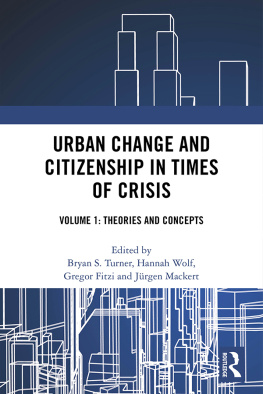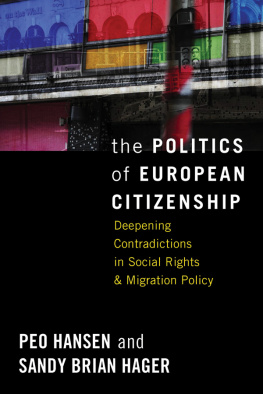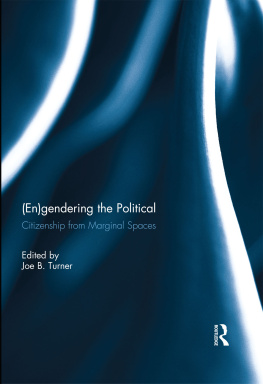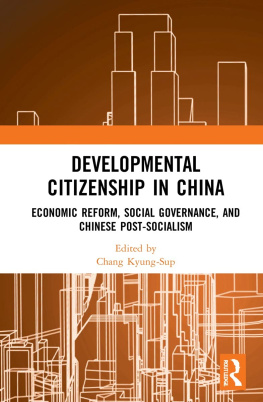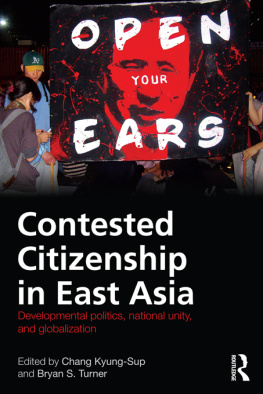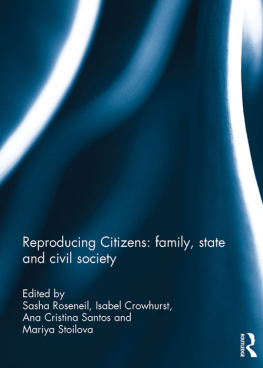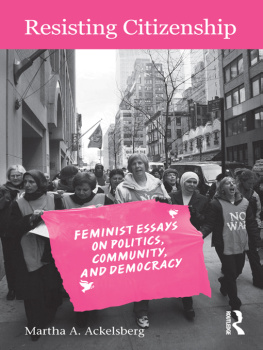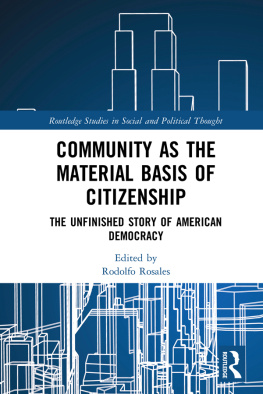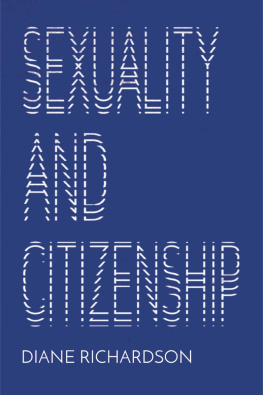ROUTLEDGE LIBRARY EDITIONS: SOCIAL THEORY
Volume 10
CITIZENSHIP AND CAPITALISM
CITIZENSHIP AND CAPITALISM
The Debate Over Reformism
BRYAN S. TURNER
First published in 1986
This edition first published in 2015
by Routledge
2 Park Square, Milton Park, Abingdon, Oxon, OX14 4RN
and by Routledge
711 Third Avenue, New York, NY 10017
Routledge is an imprint of the Taylor & Francis Group, an informa business
1986 Bryan S. Turner
All rights reserved. No part of this book may be reprinted or reproduced or utilised in any form or by any electronic, mechanical, or other means, now known or hereafter invented, including photocopying and recording, or in any information storage or retrieval system, without permission in writing from the publishers.
Trademark notice: Product or corporate names may be trademarks or registered trademarks, and are used only for identification and explanation without intent to infringe.
British Library Cataloguing in Publication Data
A catalogue record for this book is available from the British Library
ISBN: 978-0-415-72731-0 (Set)
eISBN: 978-1-315-76997-4 (Set)
ISBN: 978-1-138-78697-4 (Volume 10)
eISBN: 978-1-315-76382-8 (Volume 10)
Publishers Note
The publisher has gone to great lengths to ensure the quality of this reprint but points out that some imperfections in the original copies may be apparent.
Disclaimer
The publisher has made every effort to trace copyright holders and would welcome correspondence from those they have been unable to trace.
Citizenship and Capitalism
The Debate Over Reformism
BRYAN S. TURNER
Bryan S. Turner, 1986
This book is copyright under the Berne Convention
No reproduction without permission. All rights reserved
Allen & Unwin (Publishers) Ltd,
40 Museum Street, London WC1A 1LU, UK
Allen & Unwin (Publishers) Ltd,
Park Lane, Hemel Hempstead, Herts HP2 4TE, UK
Allen & Unwin, Inc.,
8 Winchester Place, Winchester, Mass. 01890, USA
Allen & Unwin (Australia) Ltd,
8 Napier Street, North Sydney, NSW 2060, Australia
First published in 1986
British Library Cataloguing in Publication Data
Turner, Bryan S.
Citizenship and capitalism: the debate over reformism. (Controversies in sociology; v. 21)
1. Civics2. Capitalism
I. TitleII. Series
323.65JA88.U66
ISBN 0043012418
ISBN 0043012426 Pbk
Library of Congress Cataloging in Publication Data
Turner, Bryan S.
Citizenship and capitalism.
(Controversies in sociology; 21)
Bibliography: p.
Includes index
1. Citizenship.2. Politics, Practical.
3. Capitalism.4. Labor and laboring classes.
5. Minorities.I. Title.II. Series.
JF801.T87 1986323.4238522813
ISBN 0043012418 (alk. paper)
ISBN 0043012426 (pbk.: alk. paper)
Set in 10 on 12 point Times by Phoenix Photosetting, Chatham and printed in Great Britain by Biddies Ltd., Guildford, Surrey
Aux armes, citoyens
Rouget de Lisle (17601836)
Contents
This study of the dynamic relationship between politics and economics in late capitalist societies forms part of a larger series of studies on ideology which started with The Dominant Ideology Thesis (Abercrombie, Hill and Turner, 1980). In these studies of ideology, various aspects of politics, religion, law and economic doctrine have been analysed in terms of the requirements of the capitalist mode of production. The general theme of these studies is that the importance of ideology has been frequently exaggerated in contemporary Marxist sociology, that the working classes are not incorporated by an overarching dominant ideology and that where ideology has any effect it is typically in organizing the coherence of a dominant class. In general, these inquiries suggest that late capitalism is quite peculiar in its structural requirements and represents a significant departure from the characteristics which define competitive capitalism. If these conclusions are valid, then it raises a problem about the explanation of the coherence of modern capitalism, especially in periods of severe economic recession and social crisis.
In our earlier study of dominant ideologies in capitalism we emphasized the importance of what Marx had called the dull compulsion of economic relationships. We saw the ultimate coherence of any society in terms of the forces which are brought to bear on individuals, compelling them to accumulate or work or save; that is, we located the fundamental requirements of society in the production and reproduction of economic circumstances. Ideology may contribute to and aid such basic economic conditions but the role of ideology is characteristically contingent rather than determinant. It could be argued that such an explanation neglects the role of political factors in the organization of capitalism and it has been argued in contemporary political sociology that the political process should be seen as relatively autonomous from economic requirements. The present study is an attempt to discuss this issue by considering the contribution of T. H. Marshall to the debate over the nature of modern capitalism through an examination of the growth of citizenship from civil to social rights.
I take the position that an extension of social rights is the outcome of political struggle and social movements whereby the working classes gained significant participation in capitalist society with the effect of influencing and limiting the profitability of capitalism. Thus there is something of a contradiction between class and citizenship. However, citizenship is not simply about class relationships since modern social movements have addressed the problems of womens rights, environmentalism, the status of children and ethnicity. Citizenship can be conceived as a series of expanding circles which are pushed forward by the momentum of conflict and struggle. This is not an evolutionary view of citizenship since these rights can also be undermined by economic recession, by right-wing political violence, by inflation and by the redefinition of social participation through the law. Citizenship expands under conditions of class conflict, popular struggle, warfare and migration.
This study has been significantly influenced by my own experience of migration and by my own attempt to come to terms with a multicultural society. This experience has been enriching, at least partly, as an outcome of an intellectually satisfying environment at the University at Flinders. In particular, I would like to thank Bob Holton, Allan Patience and Karen Lane for their lively interest in questions of social change, modernity and social rights under conditions of multiculturalism. In particular Karen Lanes thesis on the states interest in unity (with special reference to class and citizenship in broadcasting arrangements in Australia) provided a significant contribution to this debate. In this respect, this present study can be seen as part of the critique of the nostalgic assumptions of traditional society, traditional sociology and at least in part an affirmation of the potentially progressive dimensions of modern democracy despite ongoing inequality and repression.


